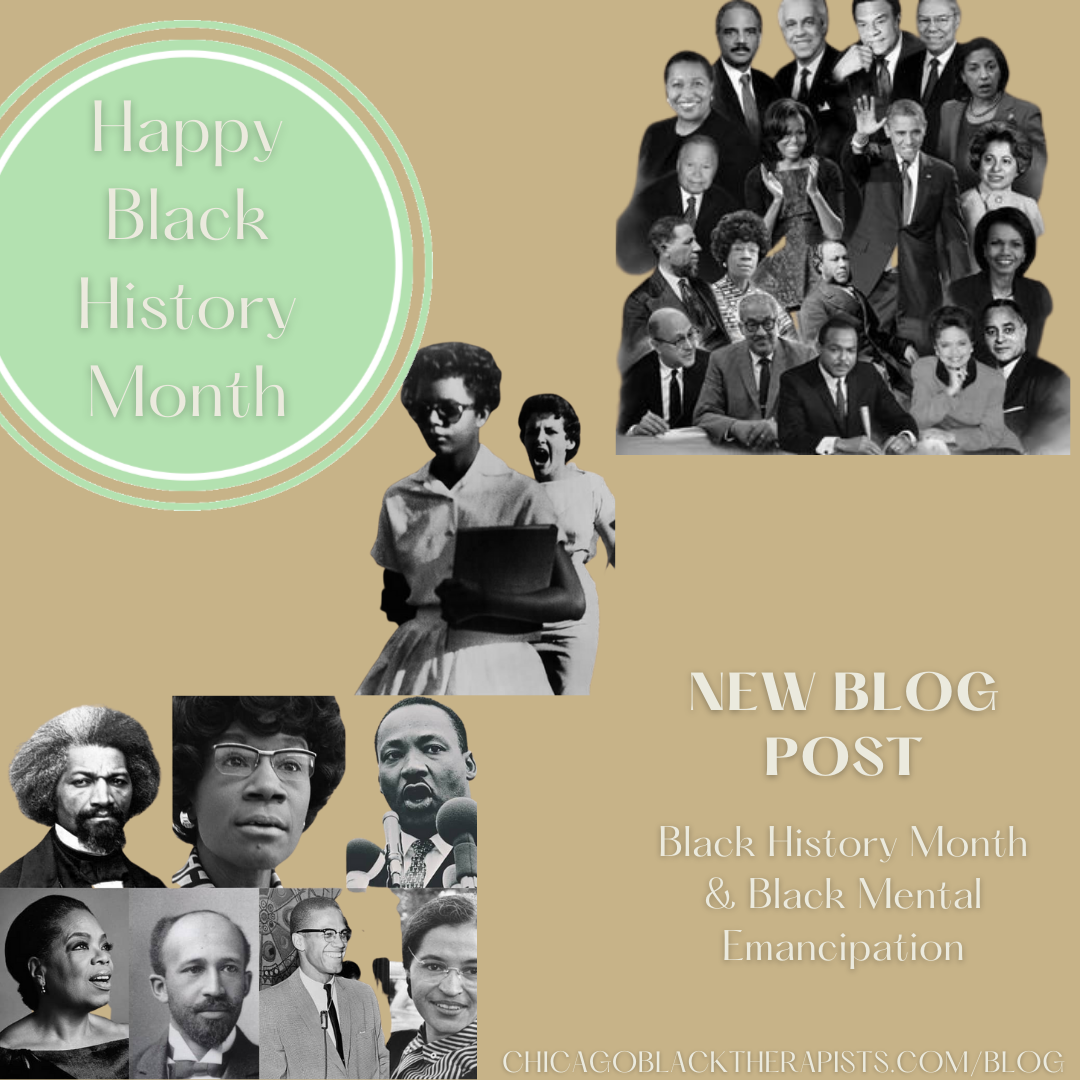Black History Month and Black Mental Emancipation
It has been 158 years since the Emancipation Proclamation that freed the enslaved people and ended slavery. It has been 58 years since the “I Have a Dream Speech” by Dr. Martin Luther King. It has been 50 years since Black History Month was marked initially for only one week in 1926 as "Negro History Week." The week of celebration and honoring Black people’s contributions in America was coined by African American historian, scholar, educator, and publisher, Carter G. Woodson. By 1931, “Negro History Week” was expanded and declared Black History Month. This year in 2021, marks the 45th year of the month-long celebration.
What is “Black History Month” for you? For many people on and off social media, it is a twenty-eight-day celebration where it’s a time for black peoples to reflect, self-educate, celebrate, and recommit, heightening our contributions on various levels. During Black History month, people commonly highlight infamous black inventors, leaders, civil rights activists, poets, actors, musicians, singers, entertainers, entrepreneurs, athletes, scientists, lawyers, doctors, and more. People host informal and formal events honoring Black history and how far we have come. People have recently encouraged one another to support black business and buy black within black history month.
This year’s Black History Month “hits” differently. Within the last year and last month, we have lost numerous significant people in the Black community. As a community, we have lost Hank Arron, Cecily Tyson, Joseph Lowery, John Lewis, Duranice Pace, Bryan Monroe, Meredith C. Anding Jr., Kobe Bryant, Chadwick Bosman, and the list goes on. It has also been eight months, just four months away from a year since George Floyd's death— a racial justice awakening that took place.
On January 20th, Black Americans have made history again, gains in our political leadership and our community. We now have the first woman, the first African American woman, the first Indian American, and the first Asian American vice president in the White House, Vice President Kamala Harris. We also now have the first Black Senator of Georgia and the 11th Black person ever to serve in the Senate, Raphael Warnock—which has placed the Democratic party in control of both the White House and Congress.
However, amid our wins, our nation has not only still been strained in a pandemic, but we have been strained in a racial and mental pandemic—especially within black communities and the impact of racial injustices and COVID-19 disparities throughout. This was clearly reflected within the insurgency at the capitol and our nation's racial injustices displayed and not displayed on national television. Vice President Harris and Raphael Warnock's victory has significantly breathed hope back into our communities across the nation. The work does not stop here because we still have a long way to achieve equality of life, mentally and physically. So, where does our mental health as a community grow from here? What should we do to continue to emancipate ourselves and communities?
For Black History Month and beyond, it is time to:
· Recommit ourselves to the significant objective of racial justice in the future of America.
· Destroy stigma that still lingers in the Black community around healing by promoting helpful resources that can be utilized to begin the process.
· Self-educate ourselves and others, as well as celebrate the contributions made by Black Americans.
· Create new spaces for Black people to connect, such as:
1. Virtual Emancipation Circles
2. Virtual Healing Workshops
3. Virtual Summits, etc.
· Show up and cast our ballots in future local, state, and national elections to ensure that we elect candidates that will act on reform and help emancipate black people from the vestiges of enslavement and segregation.
As Black people, we have come a very long way from the deep-rooted history of traumas, fights, contributions, and healing, but we still have ways to go. I encourage all healers from all disciplines to come together to dismantle oppression, bridge the gaps of inequality, and encourage generational healing. There should be education and motivation to utilize our civic hearts in the Black community to continue to ignite the next Black leaders. We must continue to become the stakeholders of breaking generational trauma, disparities and combating injustices. The Black Community is so powerful, and we must utilize that power to make ever-lasting shifts. We will continue to overcome and overturn.
Since 1976, every American president has designated February as Black History Month and endorsed a specific theme. For 2021, the theme of this Black History month has been declared as:
“Black Family: Representation, Identity, and Diversity."
This theme explores the African diaspora and the spread of Black families across the United States. Let us uphold this theme pridefully and unapologetically. Happy Black History Month!
Written by: Cikylie C. Brooks, M.S.
Clinical Psychology Doctoral Extern
